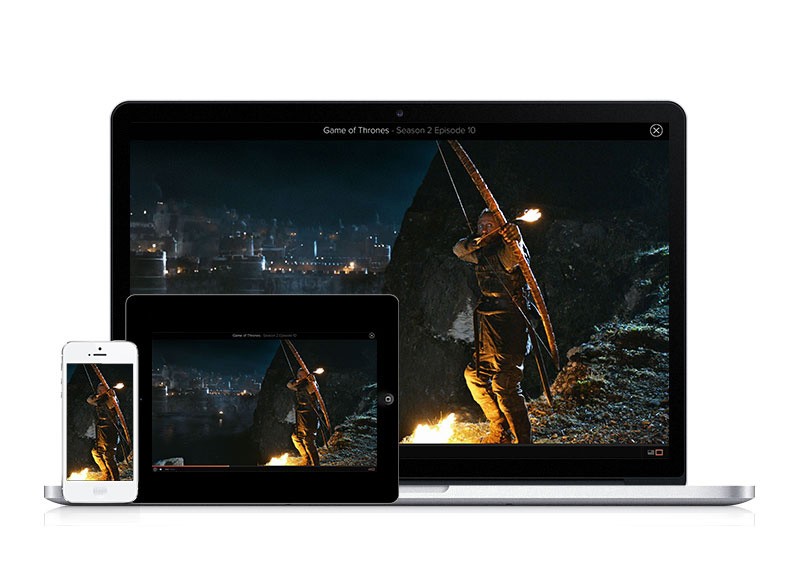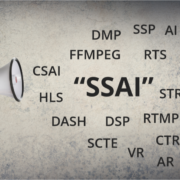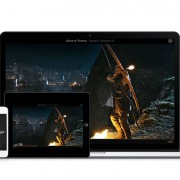Industry Insights
BLOG: Content Owners – Embrace a More Simplified Approach – Luke Durham, CTO, Switch Media
/in News, SwitchedOn blog, Whats newBLOG: MediaHQ Lite – A true working online video platform for realistic budgets – Luke Durham, CTO, Switch Media
/in News, SwitchedOn blog, Whats newBLOG: Addressable Advertising: Unlocking its Power with Server-Side Ad Insertion (SSAI) Technology
/in blog, News, SwitchedOn blog, Whats newThe many complexities of online video
/in SwitchedOn blog, Whats newPaul Skinner, Senior Software Engineer, Switch Media.
At Switch Media we often speak to clients who assume putting video online is no more difficult than adding a new webpage to their site. Yet, the reality is that Google bought YouTube for over 2 billion dollars… that figure was unheard of in 2006. Just look around at how many websites contain really good video that consistently works across all devices… it’s certainly not many. That’s because putting video online can be a complex operation, but why?
Let’s go through some of the challenges businesses who want to put video content online face.
Royalties. Web standards tend to be more of a consensus system. When Adobe flash animations ruled the web, Steve Jobs led the charge against its inefficient vector based system that would slow down his iPhones. In that particular case, the problem was clear and the world agreed on royalty free standards like HTML 5, as they allow for far more efficient animations on phones and tablets.
Video is a different animal. With video we are not reaching a consensus on how we explain an animation. Video standards require researchers at institutions like Germany’s Fraunhofer Society, or possibly even Australia’s CSIRO, to test mathematical Fourier transforms, compression algorithms and colour spaces to find the most efficient ways to compress video. But someone has to foot the bill for their efforts.
This leads to several competing standards. The most recent high profile battle was when Google bought the VP8 codec to compete against MPEGs H.264 codec as the standard of choice for the web. Google intervened because of the royalties MPEG was charging. Which horse would you back in this race?
Hardware decoding in devices. This is where the algorithms to decrypt video are baked into the client’s CPU with low level software that ‘cannot be changed’. This allows the power efficient CPU in your phone or set top box to play video. Although due to royalties, every device supports different video technologies. A phone manufacturer may license a wide range of technologies for their high end devices. And yes, you guessed it, their cheaper devices may not be so lucky. This leads to the video supplier having to support a myriad of codecs, bitrates, muxing formats etc. which can be a complex and lengthy process.
Doing it all live! Live streaming presents its own challenges. Typically the TV shows you watch on Presto or Netflix have been encoded with a piece of software that unfortunately is too slow to produce good quality video in real time. A common solution is hardware encoding appliances, which can easily cost over $100K! This is a huge expense for any business, but there are other options that don’t cost an arm and a leg. Switch Media can help you to understand these other options, as well as how much redundancy you require and how much bandwidth you need to reserve for your live feeds.
Video processing infrastructure. Video is a trade-off between processing power and the amount of data required to transmit and store it. By using more CPU cycles to encode multiple renditions of the video, the result is quality video that is quick to transmit and is supported by even older devices. But who’s got multiple spare multi core servers lying around to encode videos, or terabytes of redundant storage to store the multiple renditions? That’s why using online video specialists like Switch Media is a smart option. We have the equipment and software ready to go, with the skills and experience to manage them.
Securing content. The content you wish to share on your site may need to be licensed and is often only for a specific audience – so it’s important to secure your content. To do this you can go through Digital Rights Management providers, also known as Conditional Access Vendors, who can help to control who can watch your video. But this is just one piece of the puzzle, these guys cannot encode your video or ensure it plays across all devices. Going with an online video specialist that can cover all elements of your video is a much easier option. At Switch Media, if we do the encoding then it’s our responsibility to ensure all security requirements are met so that our client’s content is as secure as it can be, and where possible we avoid going through a CA vendor to avoid unnecessary costs.
A globally competitive technology leader in delivering online video content, Switch Media understands every facet of online video, from hardware and infrastructure to royalties and security. Our in-house team of strategists, architects, programmers and technical staff can provide expertise and management of all elements around placing video online, so that businesses can reap the benefits of implementing this new technology without having to become sudden experts in the many complexities that are involved.
Feel free to contact us to discuss how we can assist you with your online video needs and queries.
Paul Skinner, Senior Software Engineer, Switch Media.
Paul has worked from video engineer to lead software engineer. He has worked for 8 years with customers that include tier 1 broadcasters in Australia and Africa.
The future of online streaming in broadcasting and beyond
/in News, SwitchedOn blog, Whats newCEO and Co-Founder of Switch Media, Christopher Stenhouse appeared on the Sky News Business Switzer program to talk about the background, expertise and direction of the company as well as the future of streaming in the broadcast space and beyond.
Christopher founded the company in 2006 with business partner CTO Luke Durham. A globally competitive technology leader in delivering online video content, the company has achieved an average annual revenue growth rate of 50 per cent over the past 7 years.
With major clients that include FOXTEL, ABC, Network Ten, Seven West Media, RMIT and the Australian Federal Parliament, Switch Media are world leaders in innovation and delivery of content online.
Switch Media’s extensive body of work includes Foxtel GO, Foxtel PLAY, Enhance TV Direct, and online streaming and broadcast for the London 2012 Olympics, 2014 Sochi Winter Olympics, the 2014 Glasgow Commonwealth Games, and the 2015 Formula 1 series.
The company’s depth of experience, spanning close to a decade, has allowed them to set the standard for delivery of online content with leading edge capabilities such as the ability to simultaneously broadcast 18 live streams on the one screen and for in stream, on-the-fly ad insertion during live events.
Watch the video to hear Christopher’s opinion on the future of streaming in broadcasting and beyond.
Interesting links
Here are some interesting links for you! Enjoy your stay :)Pages
- About Us
- AdEase
- AppCMS
- Careers
- Channel Ten Case Studies
- Cookie Policy
- Enjoy your Whitepaper
- Foxtel Case Studies
- Freeview Case Studies
- Homepage – Switch Media
- Live2VOD
- LiveStreaming
- Media Manager
- MediaHQ
- MediaHQ Lite
- No Access
- Partners
- Privacy Policy
- SMPTE Meeting Booking Form
- Subscribe
- Switch Media ad:tech Foxtel Now Box Sweepstakes Terms and Conditions
- Switch Media Overview
- Switch Media Product Enquiry
- Switch Media Whitepapers
- Telemetry
- Thank you for your interest in Switch Media
- Thanks for your interest in our linear ad insertion whitepaper
- Thanks for your interest in our OTT whitepaper
- Universal Player
- Universal Player Features
- VOD2Live
- What’s New
- Whitepaper: Linear Ad Insertion
- WHITEPAPER: OTT Insights Uptake, Perceptions, and the Worldwide Evolution
- News
- SwitchedOn Blog
- Case Studies
- Government and Enterprise
- Blog
- Contact Us
Categories
Archive
- December 2023
- October 2023
- September 2023
- August 2023
- June 2023
- May 2023
- March 2023
- February 2023
- December 2022
- October 2022
- September 2022
- August 2022
- June 2022
- May 2022
- March 2022
- February 2022
- January 2022
- November 2021
- October 2021
- September 2021
- August 2021
- July 2021
- June 2021
- May 2021
- April 2021
- March 2021
- February 2021
- January 2021
- December 2020
- November 2020
- September 2020
- August 2020
- July 2020
- June 2020
- May 2020
- April 2020
- March 2020
- February 2020
- December 2019
- November 2019
- October 2019
- September 2019
- August 2019
- July 2019
- June 2019
- May 2019
- April 2019
- March 2019
- February 2019
- December 2018
- November 2018
- October 2018
- September 2018
- August 2018
- July 2018
- June 2018
- May 2018
- April 2018
- March 2018
- February 2018
- December 2017
- November 2017
- October 2017
- September 2017
- July 2017
- June 2017
- May 2017
- April 2017
- February 2017
- December 2016
- November 2016
- October 2016
- August 2016
- May 2016
- April 2016
- February 2016
- January 2016
- December 2015
- November 2015
- July 2015
- May 2015
- April 2015
- March 2015
- January 2015
- December 2014
- August 2014
- June 2014
- February 2014
- July 2013
- June 2013









